Here are my favorite poems about march categorized:
- Short poems about march
- Poems about weather in march
- Poems about march and spring
- Poems about march wind
So if you want the best poems about march, then you’re in the right place.
Let’s get started!
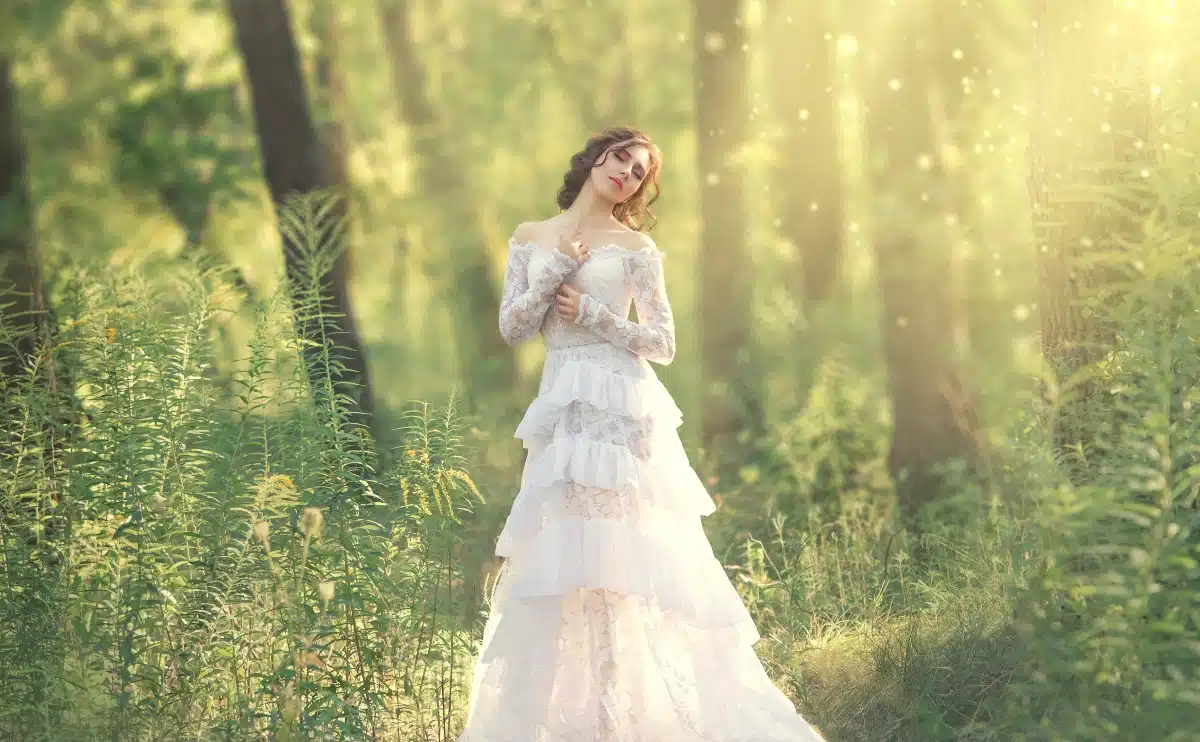
Windswept Poems About March
Delve into a meticulously curated anthology of the finest poems dedicated to the month of March, thoughtfully categorized for your convenience.
Experience the brevity and charm of concise verses capturing the essence of this transitional season, while also indulging in the lyrical enchantment of poems celebrating the lively March wind.
Unearth a treasure trove of exceptional March-themed poetry, meticulously gathered for your reading pleasure.
Immerse yourself in the profound beauty and evocative power of these carefully selected works, all in one convenient place.
Let’s go!
My #1 Favorite Poem About March

“Dogwood Blossoms” by George Marion McClellan
To dreamy languors and the violet mist
Of early Spring, the deep sequestered vale
Gives first her paling-blue Miamimist,
Where blithely pours the cuckoo’s annual tale
Of Summer promises and tender green,
Of a new life and beauty yet unseen.
The forest trees have yet a sighing mouth,
Where dying winds of March their branches swing,
While upward from the dreamy, sunny South,
A hand invisible leads on the Spring.
His rounds from bloom to bloom the bee begins
With flying song, and cowslip wine he sups,
Where to the warm and passing southern winds,
Azaleas gently swing their yellow cups.
Soon everywhere, with glory through and through,
The fields will spread with every brilliant hue.
But high o’er all the early floral train,
Where softness all the arching sky resumes,
The dogwood dancing to the winds’ refrain,
In stainless glory spreads its snowy blooms.
Short Poems About March

“Sonnet LXXXV: To March” by Anna Seward
March, tho’ the Hours of promise with bright ray
May gild thy noons, yet, on wild pinion borne,
Loud Winds more often rudely wake thy morn,
And harshly hymn thy early-closing day.
Still the chill’d Earth wears, with her tresses shorn,
Her bleak, grey garb: – yet not for this we mourn,
Nor, as in Winter’s more enduring sway,
With festal viands, and Associates gay,
Arm ‘gainst the Skies; – nor shun the piercing gale;
But, with blue cheeks, and with disorder’d hair,
Meet its rough breath; – and peep for primrose pale,
Or lurking violet, under hedges bare;
And, thro’ long evenings, from our Lares claim
The thrift of stinted grate, and sullen flame.
“March” by Elizabeth Akers
The brown buds thicken on the trees,
Unbound, the free streams sing,
As March leads forth across the leas
The wild and windy spring.
Where in the fields the melted snow
Leaves hollows warm and wet,
Ere many days will sweetly blow
The first blue violet.
“March” by William Morris
Slayer of winter, art thou here again?
O welcome, thou that bring’st the summer nigh!
The bitter wind makes not thy victory vain,
Nor will we mock thee for thy faint blue sky.
Welcome, O March! whose kindly days and dry
Make April ready for the throstle’s song,
Thou first redresser of the winter’s wrong!
Yea, welcome March! and though I die ere June,
Yet for the hope of life I give thee praise,
Striving to swell the burden of the tune
That even now I hear thy brown birds raise,
Unmindful of the past or coming days;
Who sing, “O joy! a new year is begun!
What happiness to look upon the sun!”
O, what begetteth all this storm of bliss,
But Death himself, who, crying solemnly,
Even from the heart of sweet Forgetfulness,
Bids us, “Rejoice! lest pleasureless ye die.

“March” by Emily Elizabeth Dickinson
We like March, his shoes are purple,
He is new and high;
Makes he mud for dog and peddler,
Makes he forest dry;
Knows the adder’s tongue his coming,
And begets her spot.
Stands the sun so close and mighty
That our minds are hot.
News is he of all the others;
Bold it were to die
With the blue-birds buccaneering
On his British sky.
“March Noon” by Langston Hughes
The moon is naked.
The wind has undressed the moon.
The wind has blown all the cloud-garments
Off the body of the moon
And now she’s naked,
Stark naked.
But why don’t you blush,
O shameless moon?
Don’t you know
It isn’t nice to be naked?
“March” by Archibald Lampman
Over the dripping roofs and sunk snow-barrows
The bells are ringing loud and strangely near,
The shout of children dins upon mine ear
Shrilly, and like a flight of silvery arrows
Showers the sweet gossip of the British sparrows,
Gathered in noisy knots of one or two,
To joke and chatter just as mortals do
Over the days long tale of joys and sorrows;
Talk before bed-time of bold deeds together
Of thefts and fights, of hard-times and the weather,
Till sleep disarm them, to each little brain
Bringing tucked wings and many a blissful dream,
Visions of wind and sun, of field and stream,
And busy barn-yards with their scattered grain.
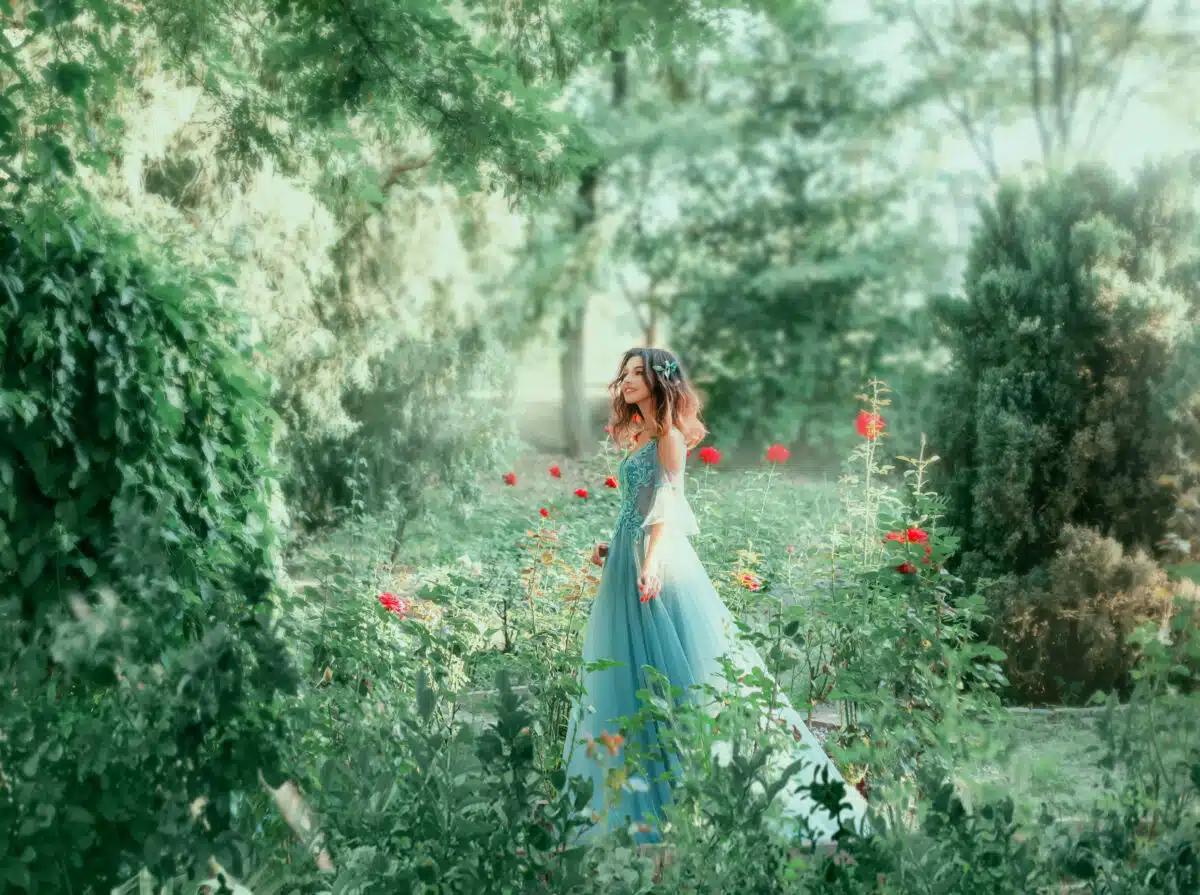
“March” by Madison Julius Cawein
This is the tomboy month of all the year,
March, who comes shouting o’er the winter hills,
Waking the world with laughter, as she wills,
Or wild halloos, a windflower in her ear.
She stops a moment by the half-thawed mere
And whistles to the wind, and straightway shrills
The hyla’s song, and hoods of daffodils
Crowd golden round her, leaning their heads to hear.
Then through the woods, that drip with all their eaves,
Her mad hair blown about her, loud she goes
Singing and calling to the naked trees;
And straight the oilets of the little leaves
Open their eyes in wonder, rows on rows,
And the first bluebird bugles to the breeze.
“March” by Ruth Loomis Skeen
Such mournful twilights, beaded with the rain;
Blurred sunsets and the wild wet dawns;
A pale moon rocked in a tempestuous sky.
Gray hours like driven ghosts drift by
To a gray doom. And over all I hear
God’s age-old laughter down the wind.
“March” by Charles Henry Webb
The earth seems a desolate mother—
Betrayed like the princess of old,
The ermine stripped from her shoulders,
And her bosom all naked and cold.
But a joy looks out from her sadness,
For she feels with a glad unrest
The throb of the unborn summer
Under her bare, brown breast.
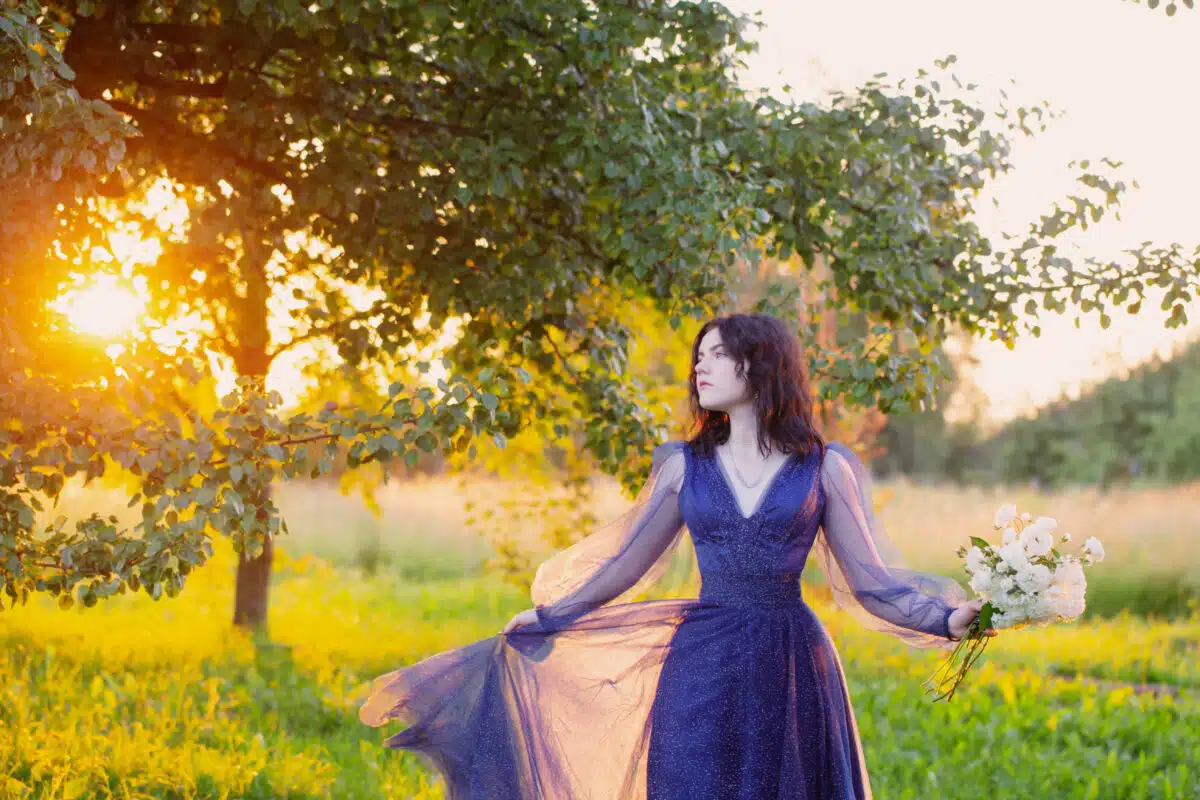
“March Thought” by Hilda Conkling
I am waiting for the flowers
To come back:
I am alone,
But I can wait for the birds
“March” by Robert Bridges
Now carol the birds at dawn, and some new lay
Announceth a homecome voyager every day.
Beneath the tufted sallows the streamlet thrills
With the leaping trout and the gleam of the daffodils.
“Out-of-Doors” by William Wordsworth
It is the first mild day of March,
Each minute sweeter than before;
The redbreast sings from the tall larch
That stands beside the door.
There is a blessing in the air,
Which seems a sense of joy to yield
To the bare trees, and mountains bare,
And grass in the green field.
Poems About Weather in March
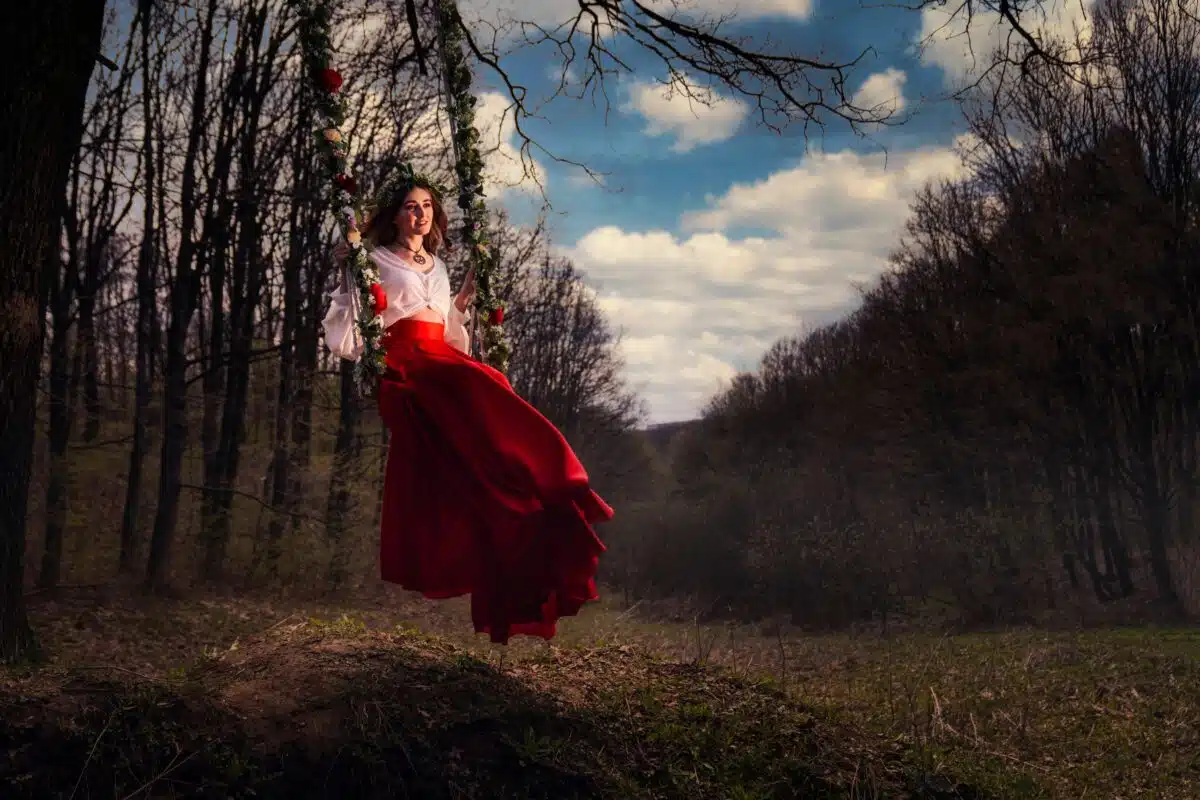
“March” by William Cullen Bryant
The stormy March is come at last,
With wind, and cloud, and changing skies,
I hear the rushing of the blast,
That through the snowy valley flies.
Ah, passing few are they who speak,
Wild stormy month! in praise of thee;
Yet, though thy winds are loud and bleak,
Thou art a welcome month to me.
For thou, to northern lands, again
The glad and glorious sun dost bring,
And thou hast joined the gentle train
And wear’st the gentle name of Spring.
And, in thy reign of blast and storm,
Smiles many a long, bright, sunny day,
When the changed winds are soft and warm,
And heaven puts on the blue of May.
Then sing aloud the gushing rills
And the full springs, from frost set free,
That, brightly leaping down the hills,
Are just set out to meet the sea.
The year’s departing beauty hides
Of wintry storms the sullen threat;
But in thy sternest frown abides
A look of kindly promise yet.
Thou bring’st the hope of those calm skies,
And that soft time of sunny showers,
When the wide bloom, on earth that lies,
Seems of a brighter world than ours.
“God-Speed To The Snow” by Archibald Lampman
March is slain; the keen winds fly;
Nothing more is thine to do;
April kisses thee good-bye;
Thou must haste and follow too;
Silent friend that guarded well
Withered things to make us glad,
Shyest friend that could not tell
Half the kindly thought he had.
Haste thee, speed thee, O kind snow;
Down the dripping valleys go,
From the fields and gleaming meadows,
Where the slaying hours behold thee,
From the forests whose slim shadows,
Brown and leafless cannot fold thee,
Through the cedar lands aflame
With gold light that cleaves and quivers,
Songs that winter may not tame,
Drone of pines and laugh of rivers.
May thy passing joyous be
To thy father, the great sea,
For the sun is getting stronger;
Earth hath need of thee no longer;
Go, kind snow, God-speed to thee!
“March” by Isabella Valancy Crawford
Shall Thor with his hammer
Beat on the mountain,
As on an anvil,
A shackle and fetter?
Shall the lame Vulcan
Shout as he swingeth
God-like his hammer,
And forge thee a fetter?
Shall Jove, the Thunderer,
Twine his swift lightnings
With his loud thunders,
And forge thee a shackle?
“No,” shouts the Titan,
The young lion-throated;
“Thor, Vulcan, nor Jove
Cannot shackle and bind me.”
Tell what will bind thee,
Thou young world-shaker,
Up vault our oceans,
Down fall our forests.
Ship-masts and pillars
Stagger and tremble,
Like reeds by the margins
Of swift running waters.
Men’s hearts at thy roaring
Quiver like harebells
Smitten by hailstones,
Smitten and shaken.
“O sages and wise men!
O bird-hearted tremblers!
Come, I will show ye
A shackle to bind me.
I, the lion-throated,
The shaker of mountains!
I, the invincible,
Lasher of oceans!
“Past the horizon,
Its ring of pale azure
Past the horizon,
Where scurry the white clouds,
There are buds and small flowers—
Flowers like snow-flakes,
Blossoms like rain-drops,
So small and tremulous.
Therein a fetter
Shall shackle and bind me,
Shall weigh down my shouting
With their delicate perfume!”
But who this frail fetter
Shall forge on an anvil,
With hammer of feather
And anvil of velvet?
Past the horizon,
In the palm of a valley,
Her feet in the grasses,
There is a maiden.
She smiles on the flowers,
They widen and redden,
She weeps on the flowers,
They grow up and kiss her.
She breathes in their bosoms,
They breathe back in odours;
Inarticulate homage,
Dumb adoration.
She shall wreathe them in shackles,
Shall weave them in fetters;
In chains shall she braid them,
And me shall she fetter.
I, the invincible;
March, the earth-shaker;
March, the sea-lifter;
March, the sky-render;
March, the lion-throated.
April the weaver
Of delicate blossoms,
And moulder of red buds—
Shall, at the horizon,
Its ring of pale azure,
Its scurry of white clouds,
Meet in the sunlight.
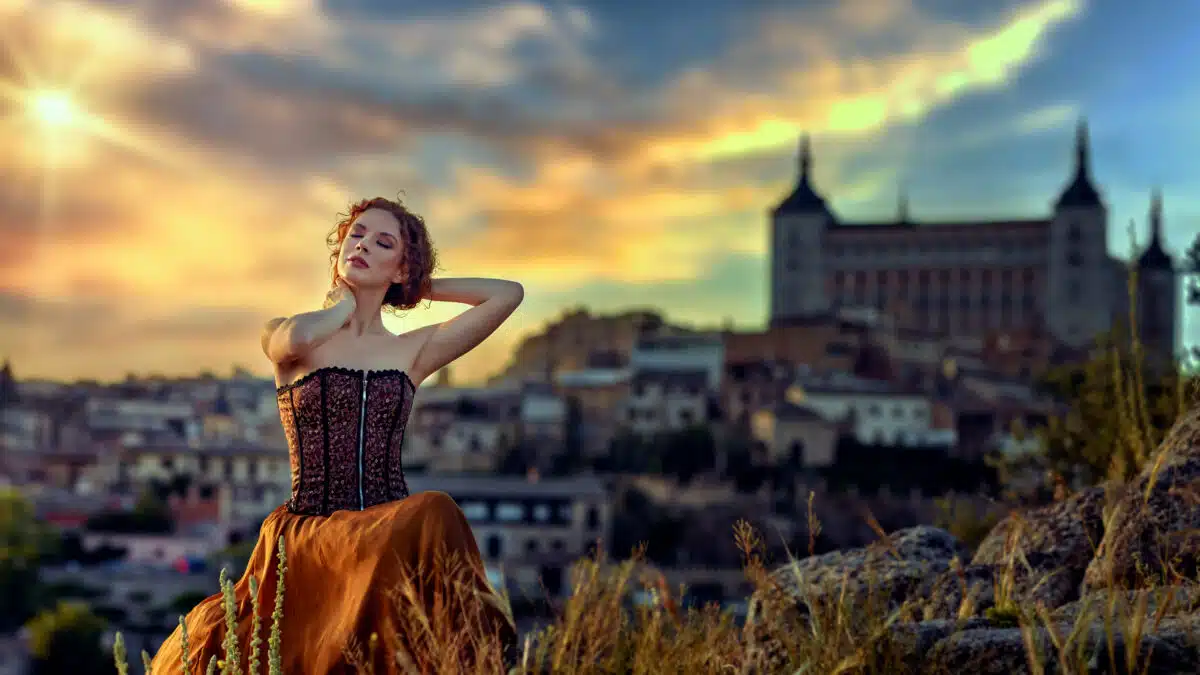
“March Evening” by Amy Lowell
Blue through the window burns the twilight;
Heavy, through trees, blows the warm south wind.
Glistening, against the chill, gray sky light,
Wet, black branches are barred and entwined.
Sodden and spongy, the scarce-green grass plot
Dents into pools where a foot has been.
Puddles lie spilt in the road a mass, not
Of water, but steel, with its cold, hard sheen.
Faint fades the fire on the hearth, its embers
Scattering wide at a stronger gust.
Above, the old weathercock groans, but remembers
Creaking, to turn, in its centuried rust.
Dying, forlorn, in dreary sorrow,
Wrapping the mists round her withering form,
Day sinks down; and in darkness to-morrow
Travails to birth in the womb of the storm.
“The March Thaw” by Edwin Curran
On—turgid, bellowing—tramp the freshet rills,
Heaped up with yellow wine, the winter’s brew.
Out-thrown, they choke and tumble from the hills,
And lash their tawny bodies, whipping through.
With flattened bells comes scudding purple rain;
The cold sky breaks and drenches out the snow.
Far from the perfect circle of the sky
The heavy winds lick off the boughs they blow;
And fields are cleansed for plows to slice again,
For April shall laugh downward by and by.
With purifying blasts the wind stalks out
And sweeps the carrion of winter on;
It prods the dank mists, stamps with jest about,
And sows the first blooms on the greening lawn.
Far up the planks of sky the winter’s dross
Goes driven to the north; her rank smells wave
In unseen humors to the icy pole.
The charwomen of the sky, with brushes, lave
And wash the fields for green, and rocks for moss,
And busily polish up the earth’s dull soul.
“March” by William Wordsworth
The cock is crowing,
The stream is flowing,
The small birds twitter,
The lake doth glitter,
The green field sleeps in the sun;
The oldest and youngest
Are at work with the strongest;
The cattle are grazing,
Their heads never raising;
There are forty feeding like one!
Like an army defeated
The snow hath retreated,
And now doth fare ill
On the top of the bare hill;
The ploughboy is whooping—anon—anon
There ’s joy in the mountains;
There ’s life in the fountains;
Small clouds are sailing,
Blue sky prevailing;
The rain is over and gone!
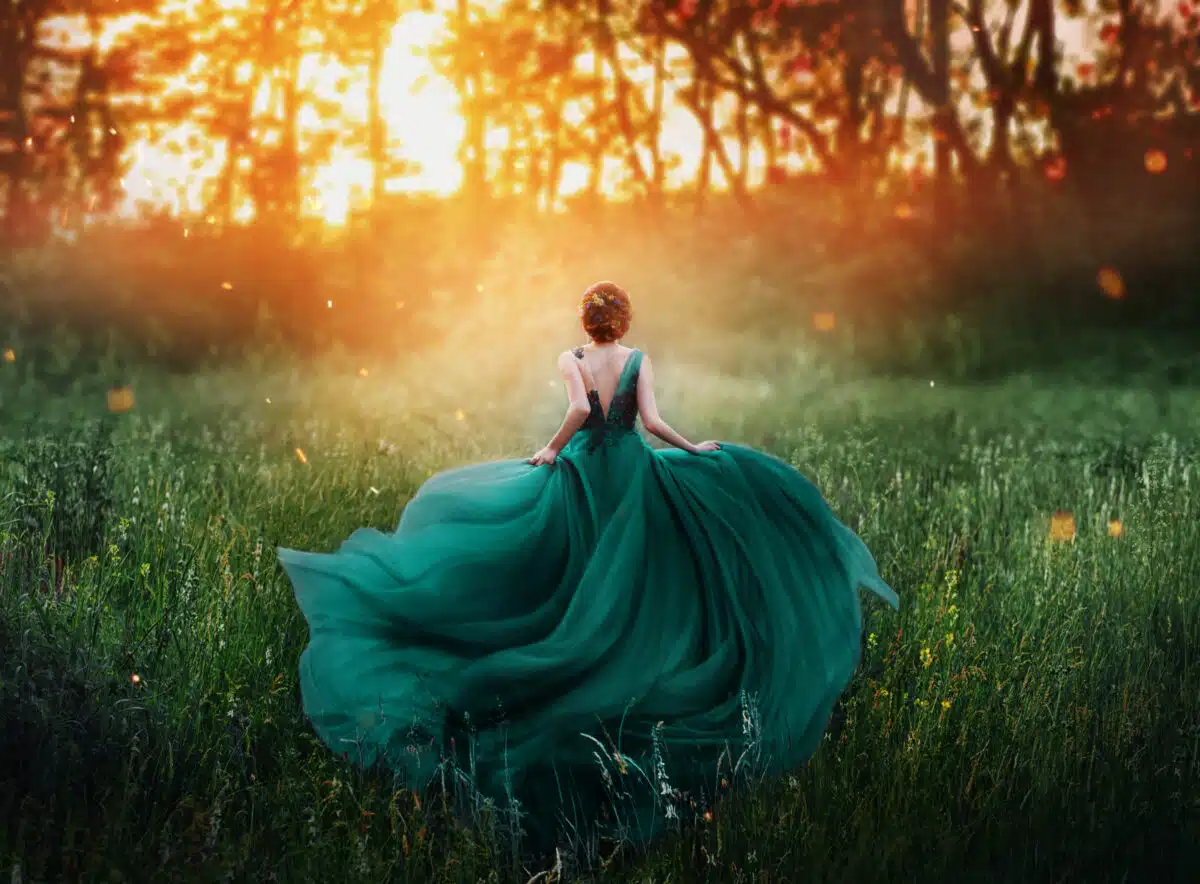
“March” by Ella Wheeler Wilcox
Like some reformer, who with mien austere,
Neglected dress, and loud insistent tones,
More rasping than the wrongs which she bemoans,
Walks through the land and wearies all who hear,
While yet we know the need of such reform;
So comes unlovely March, with wind and storm,
To break the spell of winter, and set free
The poisoned brooks and crocus beds oppressed.
Severe of face, gaunt-armed, and wildly dressed,
She is not fair nor beautiful to see.
But merry April and sweet smiling May
Come not till March has first prepared the way.
“In March” by Archibald Lampman
The sun falls warm: the southern winds awake:
The air seethes upward with a steamy shiver:
Each dip of the road is now a crystal lake,
And every rut a little dancing river.
Through great soft clouds that sunder overhead
The deep sky breaks as pearly blue as summer:
Out of a cleft beside the river’s bed
Flaps the black crow, the first demure newcomer.
The last seared drifts are eating fast away
With glassy tinkle into glittering laces:
Dogs lie asleep, and little children play
With tops and marbles in the sunbare places;
And I that stroll with many a thoughtful pause
Almost forget that winter ever was.
“March” by Henry Kendall
Clear upland voices, full of wind and stream,
Greet March, the sister of the flying beam
And speedy shadow. She, with rainbow crowned,
Lives in a sphere of songs of mazy sound.
The hymn of waters and the gale’s high tone,
With anthems from the thunder’s mountain throne,
Are with her ever. This, behold, is she
Who draws its great cry from the strong, sad sea;
She is the month of majesty. Her force
Is power that moves along a stately course,
Within the lines of order, like no wild
And lawless strength of winter’s fiercest child.
About her are the wind-whipped torrents; far
Above her gleams and flies the stormy star,
And round her, through the highlands and their rocks,
Rings loud the grand speech from the equinox.
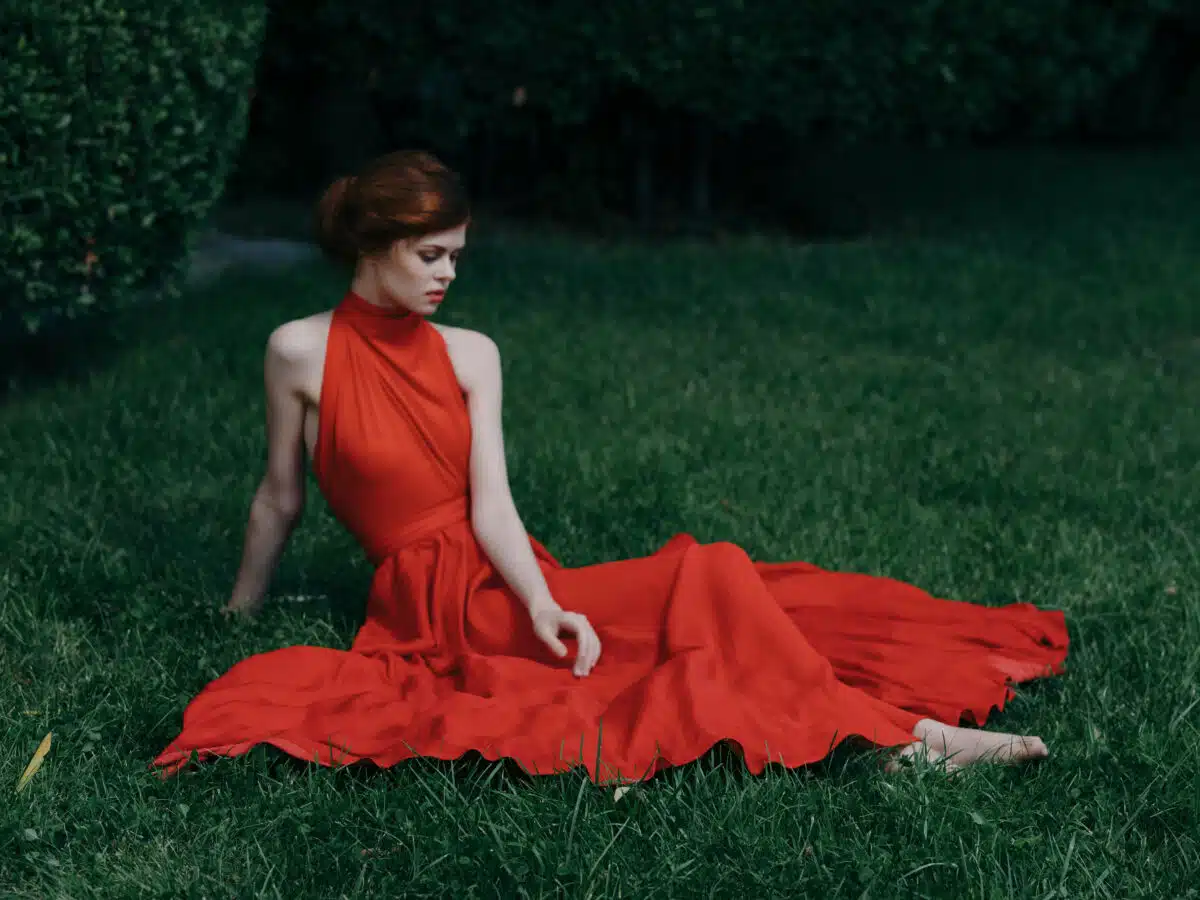
“March” by Anonymous
March,
you remind me of
the pyramids, our pyramids—
stript of the polished stone
that used to guard them!
March,
you are like Fra Angelico
at Fiesole, painting on plaster!
March,
you are like a band of
young poets that have not learned
the blessedness of warmth
(or have forgotten it).
At any rate—
I am moved to write poetry
for the warmth there is in it
and for the loneliness—
a poem that shall have you
in it March.
“Four Songs of the Season” by Algernon Charles Swinburne
In fierce March weather
White waves break tether,
And whirled together
At either hand,
Like weeds uplifted,
The tree‑trunks rifted
In spars are drifted,
Like foam or sand,
Past swamp and sallow
And reed‑beds callow,
Through pool and shallow,
To wind and lee,
Till, no more tongue‑tied,
Full flood and young tide
Roar down the rapids and storm the sea.
Poems About March and Spring
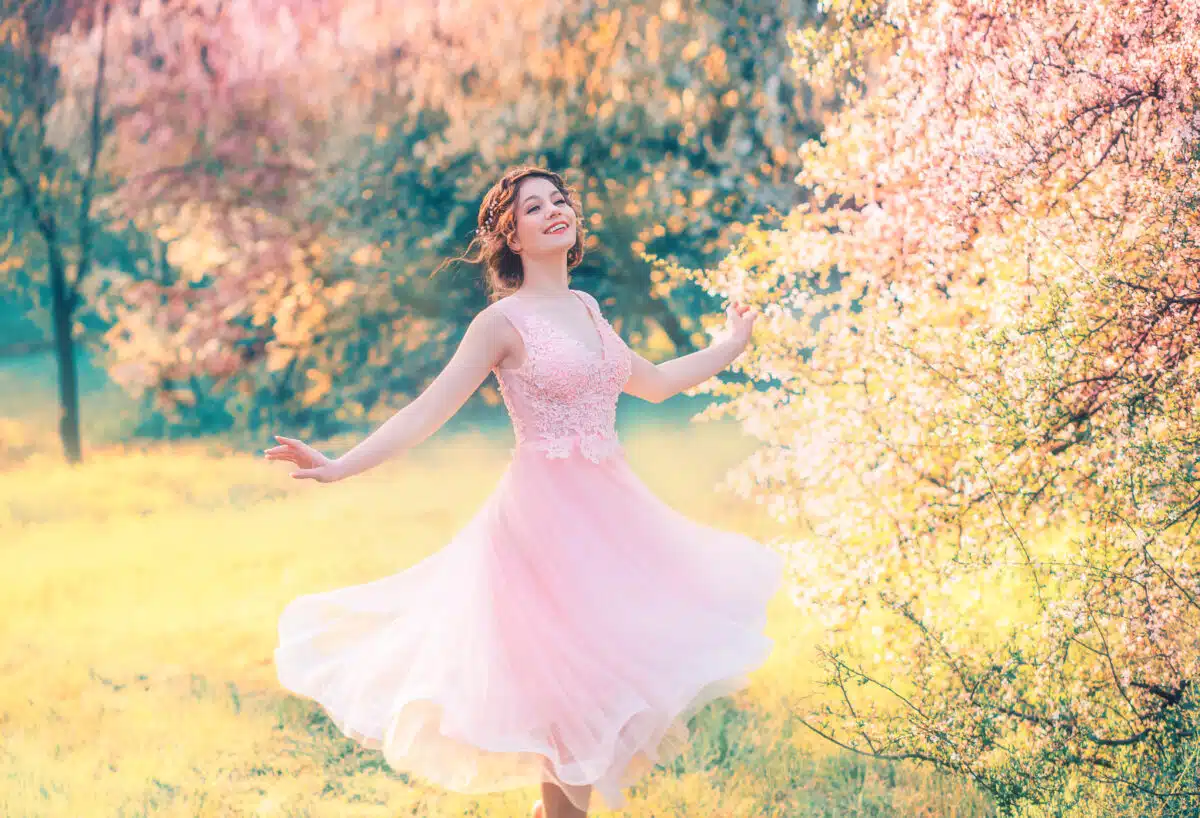
“March” by Johann Wolfgang von Goethe
The snow-flakes fall in showers,
The time is absent still,
When all Spring’s beauteous flowers,
When all Spring’s beauteous flowers
Our hearts with joy shall fill.
With lustre false and fleeting
The sun’s bright rays are thrown;
The swallow’s self is cheating:
The swallow’s self is cheating,
And why? He comes alone!
Can I e’er feel delighted
Alone, though Spring is near?
Yet when we are united,
Yet when we are united,
The Summer will be here.
“March” by John Clare
The insect world, now sunbeams higher climb,
Oft dream of Spring, and wake before their time:
Bees stroke their little legs across their wings,
And venture short flights where the snow-drop hings
Its silver bell, and winter aconite
Its buttercup-like flowers that shut at night,
With green leaf furling round its cup of gold,
Like tender maiden muffled from the cold:
They sip and find their honey-dreams are vain,
Then feebly hasten to their hives again.
The butterflies, by eager hopes undone,
Glad as a child come out to greet the sun,
Beneath the shadows of a sunny shower
Are lost, nor see to-morrow’s April flower.
“March: An Ode” by Algernon Charles Swinburne
I
Ere frost-flower and snow-blossom faded and fell, and the splendour of winter had passed out of sight,
The ways of the woodlands were fairer and stranger than dreams that fulfil us in sleep with delight;
The breath of the mouths of the winds had hardened on tree-tops and branches that glittered and swayed
Such wonders and glories of blossom like snow or of frost that outlightens all flowers till it fade
That the sea was not lovelier than here was the land, nor the night than the day, nor the day than the night,
Nor the winter sublimer with storm than the spring: such mirth had the madness and might in thee made,
March, master of winds, bright minstrel and marshal of storms that enkindle the season they smite.
II
And now that the rage of thy rapture is satiate with revel and ravin and spoil of the snow,
And the branches it brightened are broken, and shattered the tree-tops that only thy wrath could lay low,
How should not thy lovers rejoice in thee, leader and lord of the year that exults to be born
So strong in thy strength and so glad of thy gladness whose laughter puts winter and sorrow to scorn?
Thou hast shaken the snows from thy wings, and the frost on thy forehead is molten: thy lips are aglow
As a lover’s that kindle with kissing, and earth, with her raiment and tresses yet wasted and torn,
Takes breath as she smiles in the grasp of thy passion to feel through her spirit the sense of thee flow.
III
Fain, fain would we see but again for an hour what the wind and the sun have dispelled and consumed,
Those full deep swan-soft feathers of snow with whose luminous burden the branches implumed
Hung heavily, curved as a half-bent bow, and fledged not as birds are, but petalled as flowers,
Each tree-top and branchlet a pinnacle jewelled and carved, or a fountain that shines as it showers,
But fixed as a fountain is fixed not, and wrought not to last till by time or by tempest entombed,
As a pinnacle carven and gilded of men: for the date of its doom is no more than an hour’s,
One hour of the sun’s when the warm wind wakes him to wither the snow-flowers that froze as they bloomed.
IV
As the sunshine quenches the snowshine; as April subdues thee, and yields up his kingdom to May;
So time overcomes the regret that is born of delight as it passes in passion away,
And leaves but a dream for desire to rejoice in or mourn for with tears or thanksgivings; but thou,
Bright god that art gone from us, maddest and gladdest of months, to what goal hast thou gone from us now?
For somewhere surely the storm of thy laughter that lightens, the beat of thy wings that play,
Must flame as a fire through the world, and the heavens that we know not rejoice in thee: surely thy brow
Hath lost not its radiance of empire, thy spirit the joy that impelled it on quest as for prey.
V
Are thy feet on the ways of the limitless waters, thy wings on the winds of the waste north sea?
Are the fires of the false north dawn over heavens where summer is stormful and strong like thee
Now bright in the sight of thine eyes? are the bastions of icebergs assailed by the blast of thy breath?
Is it March with the wild north world when April is waning? the word that the changed year saith,
Is it echoed to northward with rapture of passion reiterate from spirits triumphant as we
Whose hearts were uplift at the blast of thy clarions as men’s rearisen from a sleep that was death
And kindled to life that was one with the world’s and with thine? hast thou set not the whole world free?
VI
For the breath of thy lips is freedom, and freedom’s the sense of thy spirit, the sound of thy song,
Glad god of the north-east wind, whose heart is as high as the hands of thy kingdom are strong,
Thy kingdom whose empire is terror and joy, twin-featured and fruitful of births divine,
Days lit with the flame of the lamps of the flowers, and nights that are drunken with dew for wine,
And sleep not for joy of the stars that deepen and quicken, a denser and fierier throng,
And the world that thy breath bade whiten and tremble rejoices at heart as they strengthen and shine,
And earth gives thanks for the glory bequeathed her, and knows of thy reign that it wrought not wrong.
VII
Thy spirit is quenched not, albeit we behold not thy face in the crown of the steep sky’s arch,
And the bold first buds of the whin wax golden, and witness arise of the thorn and the larch:
Wild April, enkindled to laughter and storm by the kiss of the wildest of winds that blow,
Calls loud on his brother for witness; his hands that were laden with blossom are sprinkled with snow,
And his lips breathe winter, and laugh, and relent; and the live woods feel not the frost’s flame parch;
For the flame of the spring that consumes not but quickens is felt at the heart of the forest aglow,
And the sparks that enkindled and fed it were strewn from the hands of the gods of the winds of March.
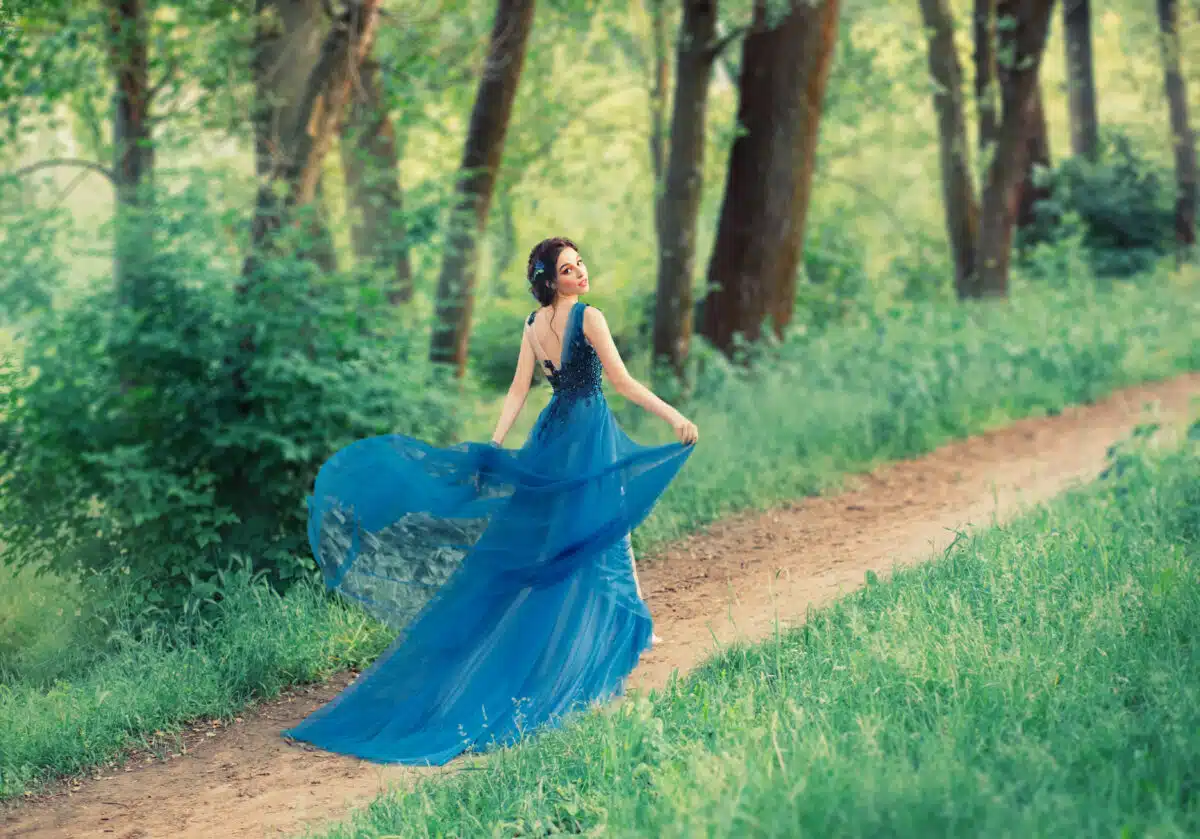
“Magdalen Walks” by Oscar Wilde
The little white clouds are racing over the sky,
And the fields are strewn with the gold of the flower of March,
The daffodil breaks under foot, and the tasselled larch
Sways and swings as the thrush goes hurrying by.
A delicate odour is borne on the wings of the morning breeze,
The odour of deep wet grass, and of brown new-furrowed earth,
The birds are singing for joy of the Spring’s glad birth,
Hopping from branch to branch on the rocking trees.
And all the woods are alive with the murmur and sound of Spring,
And the rose-bud breaks into pink on the climbing briar,
And the crocus-bed is a quivering moon of fire
Girdled round with the belt of an amethyst ring.
And the plane to the pine-tree is whispering some tale of love
Till it rustles with laughter and tosses its mantle of green,
And the gloom of the wych-elm’s hollow is lit with the iris sheen
Of the burnished rainbow throat and the silver breast of a dove.
See! the lark starts up from his bed in the meadow there,
Breaking the gossamer threads and the nets of dew,
And flashing adown the river, a flame of blue!
“Spring Song” by Amelia Josephine Burr
I love daffodils.
I love Narcissus when he bends his head.
I can hardly keep March and spring and Sunday and daffodils
Out of my rhyme of song.
Do you know anything about the spring
When it comes again?
God knows about it while winter is lasting:
Flowers bring him power in the spring,
And birds bring it, and children.
He is sometimes sad and alone
Up there in the sky trying to keep his worlds happy.
I bring him songs when he is in his sadness, and weary.
I tell him how I used to wander out to study stars and the moon he made
And flowers in the dark of the wood.
I keep reminding him about his flowers he has forgotten,
And that snowdrops are up.
What can I say to make him listen?
“God,” I say,
“Don’t you care!
Nobody must be sad or sorry
In the spring-time of flowers.”
“A Robin” by Robert Bridges
Flame-throated robin on the topmost bough
Of the leafless oak, what singest thou?
Hark! he telleth how—
‘Spring is coming now; Spring is coming now.
Now ruddy are the elm-tops against the blue sky,
The pale larch donneth her jewelry;
Red fir and black fir sigh,
And I am lamenting the year gone by.
The bushes where I nested are all cut down,
They are felling the tall trees one by one,
And my mate is dead and gone,
In the winter she died and left me lone.
She lay in the thicket where I fear to go;
For when the March-winds after the snow
The leaves away did blow,
She was not there, and my heart is woe:
And sad is my song, when I begin to sing,
As I sit in the sunshine this merry spring:
Like a withered leaf I cling
To the white oak-bough, while the wood doth ring.
Spring is coming now, the sun again is gay;
Each day like a last spring’s happy day.’—
Thus sang he; then from his spray
He saw me listening and flew away.
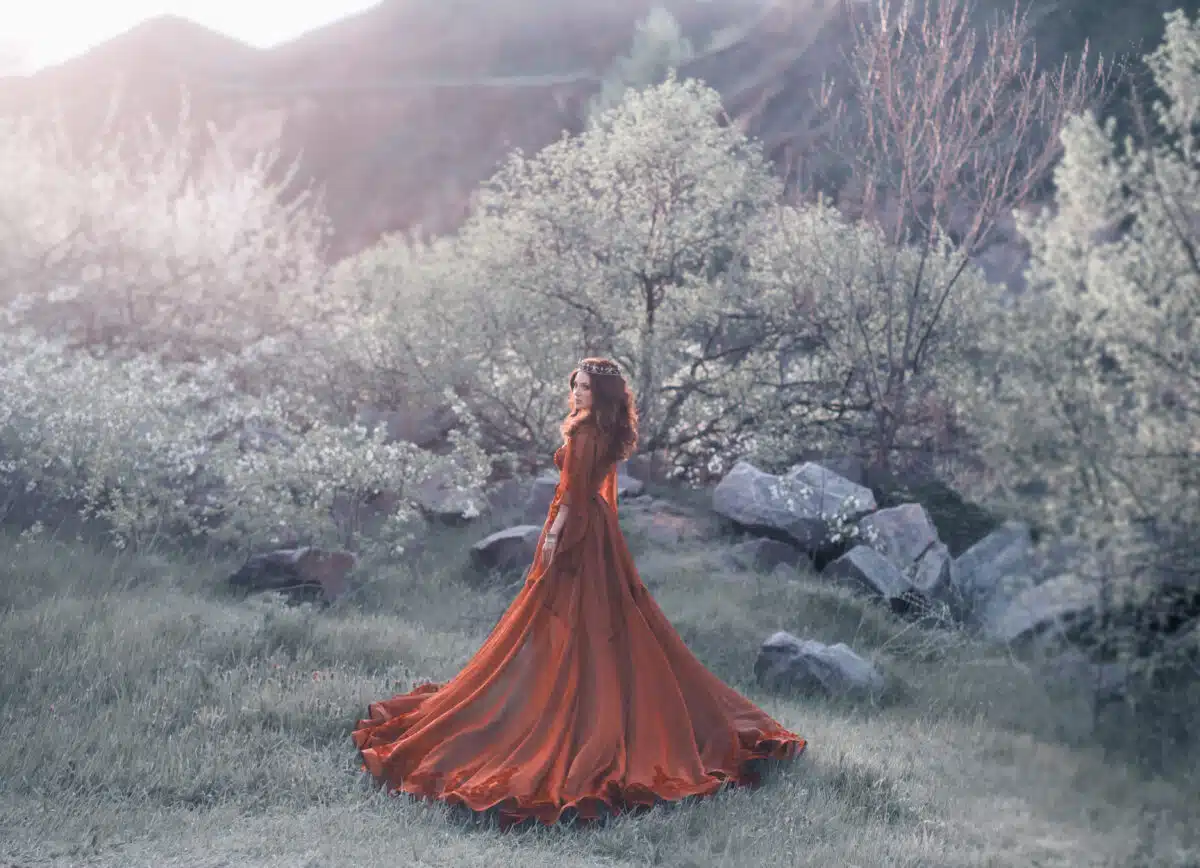
“Frost In May” by Madison Julius Cawein
March set heel upon the flowers,
Trod and trampled them for hours:
But when April’s bugles rang,
Up their starry legions sprang,
Radiant in the sun-shot showers.
April went her frolic ways,
Arm in arm with happy days:
Then from hills that rim the west,
Bare of head and bare of breast,
May, the maiden, showed her face.
Then, it seemed, again returned
March, the iron-heeled, who turned
From his northward path and caught
May about the waist, who fought
And his fierce advances spurned.
What her strength and her disdain
To the madness in his brain!
He must kiss her though he kill;
Then, when he had had his will,
Go his roaring way again.
Icy grew her finger-tips,
And the wild-rose of her lips
Paled with frost: then loud he laughed,
Left her, like a moonbeam-shaft,
Shattered, where the forest drips….
Mourn for her, O honey-bees!
Mourn, O buds upon the trees!
Birds and blossoms, mourn for May!
Mourn for her, then come away!
Leave her where her flowers freeze.
Leave her. Nothing more may save.
Leave her in her wildwood grave.
Nothing now will waken her,
Loved and lost, and lovelier
For the kiss that wild March gave.
“The Last Of March” by John Clare
Though o’er the darksome northern hill
Old ambush’d winter frowning flies,
And faintly drifts his threatenings still
In snowy sweet and blackening skies;
Yet here the willow leaning lies
And shields beneath the budding flower,
Where banks to break the wind arise,
‘Tis sweet to sit and spend an hour.
Though floods of winter bustling fall
Adown the arches bleak and blea,
Though snow-storms clothe the mossy wall,
And hourly whiten o’er the lea;
Yet when from clouds the sun is free
And warms the learning bird to sing,
‘Neath sloping bank and sheltering tree
‘Tis sweet to watch the creeping spring.
Though still so early, one may spy
And track her footsteps every hour;
The daisy with its golden eye,
And primrose bursting into flower;
And snugly, where the thorny bower
Keeps off the nipping frost and wind,
Excluding all but sun and shower,
There children early violets find.
Here ‘neath the shelving bank’s retreat
The horse-blob swells its golden ball;
Nor fear the lady-smocks to meet
The snows that round their blossoms fall:
Here by the arch’s ancient wall
The antique elder buds anew;
Again the bulrush sprouting tall
The water wrinkles, rippling through.
As spring’s warm herald April comes,
As nature’s sleep is nearly past,
How sweet to hear the wakening hums
Of aught beside the winter blast!
Of feather’d minstrels first and last,
The robin’s song’s again begun;
And, as skies clear when overcast,
Larks rise to hail the peeping sun.
The startling peewits, as they pass,
Scream joyous whirring over-head,
Right glad the fields and meadow grass
Will quickly hide their careless shed:
The rooks, where yonder witchens spread,
Quawk clamorous to the spring’s approach;
Here silent, from its watery bed,
To hail its coming, leaps the roach.
While stalking o’er the fields again
In stripp’d defiance to the storms,
The hardy seedsman spreads the grain,
And all his hopeful toil performs:
In flocks the timid pigeon swarms,
For scatter’d kernels chance may spare;
And as the plough unbeds the worms,
The crows and magpies gather there.
Yon bullocks low their liberty,
The young grass cropping to their fill;
And colts, from straw-yards neighing free,
Spring’s opening promise ‘joy at will:
Along the bank, beside the rill
The happy lambkins bleat and run,
Then weary, ‘neath a sheltering hill
Drop basking in the gleaming sun.
At distance from the water’s edge,
On hanging sallow’s farthest stretch,
The moor-hen ‘gins her nest of sedge
Safe from destroying school-boy’s reach.
Fen-sparrows chirp and fly to fetch
The wither’d reed-down rustling nigh,
And, by the sunny side the ditch,
Prepare their dwelling warm and dry.
Again a storm encroaches round,
Thick clouds are darkening deep behind;
And, through the arches, hoarsely sound
The risings of the hollow wind:
Spring’s early hopes seem half resign’d,
And silent for a while remain;
Till sunbeams broken clouds can find,
And brighten all to life again.
Ere yet a hailstone pattering comes,
Or dimps the pool the rainy squall,
One hears, in mighty murmuring hums,
The spirit of the tempest call:
Here sheltering ‘neath the ancient wall
I still pursue my musing dreams,
And as the hailstones round me fall
I mark their bubbles in the streams.
Reflection here is warm’d to sigh,
Tradition gives these brigs ren ancient wall
I still pursue my musing dreams,
And as the hailstones round me fall
I mark their bubbles in the streams.
Reflection here is warm’d to sigh,
Tradition gives these brigs renown,
Though heedless Time long pass’d them by
Nor thought them worthy noting down:
Here in the mouth of every clown
The “Roman road” familiar sounds;
All else, with everlasting frown,
Oblivion’s mantling mist surrounds.
These walls the work of Roman hands!
How may conjecturing Fancy pore,
As lonely here one calmly stands,
On paths that age has trampled o’er.
The builders’ names are known no more;
No spot on earth their memory bears;
And crowds, reflecting thus before,
Have since found graves as dark as theirs.
The storm has ceas’d,–again the sun
The ague-shivering season dries;
Short-winded March, thou’lt soon be done,
Thy fainting tempest mildly dies.
Soon April’s flowers and dappled skies
Shall spread a couch for lovely May,
Upon whose bosom Nature lies
And smiles her joyous youth away.own,
Though heedless Time long pass’d them by
Nor thought them worthy noting down:
Here in the mouth of every clown
The “Roman road” familiar sounds;
All else, with everlasting frown,
Oblivion’s mantling mist surrounds.
These walls the work of Roman hands!
How may conjecturing Fancy pore,
As lonely here one calmly stands,
On paths that age has trampled o’er.
The builders’ names are known no more;
No spot on earth their memory bears;
And crowds, reflecting thus before,
Have since found graves as dark as theirs.
The storm has ceas’d,–again the sun
The ague-shivering season dries;
Short-winded March, thou’lt soon be done,
Thy fainting tempest mildly dies.
Soon April’s flowers and dappled skies
Shall spread a couch for lovely May,
Upon whose bosom Nature lies
And smiles her joyous youth away.
“Dear March—Come in” by Emily Dickinson
Dear March—Come in—
How glad I am—
I hoped for you before—
Put down your Hat—
You must have walked—
How out of Breath you are—
Dear March, how are you, and the Rest—
Did you leave Nature well—
Oh March, Come right upstairs with me—
I have so much to tell—
I got your Letter, and the Birds—
The Maples never knew that you were coming—
I declare – how Red their Faces grew—
But March, forgive me—
And all those Hills you left for me to Hue—
There was no Purple suitable—
You took it all with you—
Who knocks? That April—
Lock the Door—
I will not be pursued—
He stayed away a Year to call
When I am occupied—
But trifles look so trivial
As soon as you have come
That blame is just as dear as Praise
And Praise as mere as Blame—
Poems About March Wind
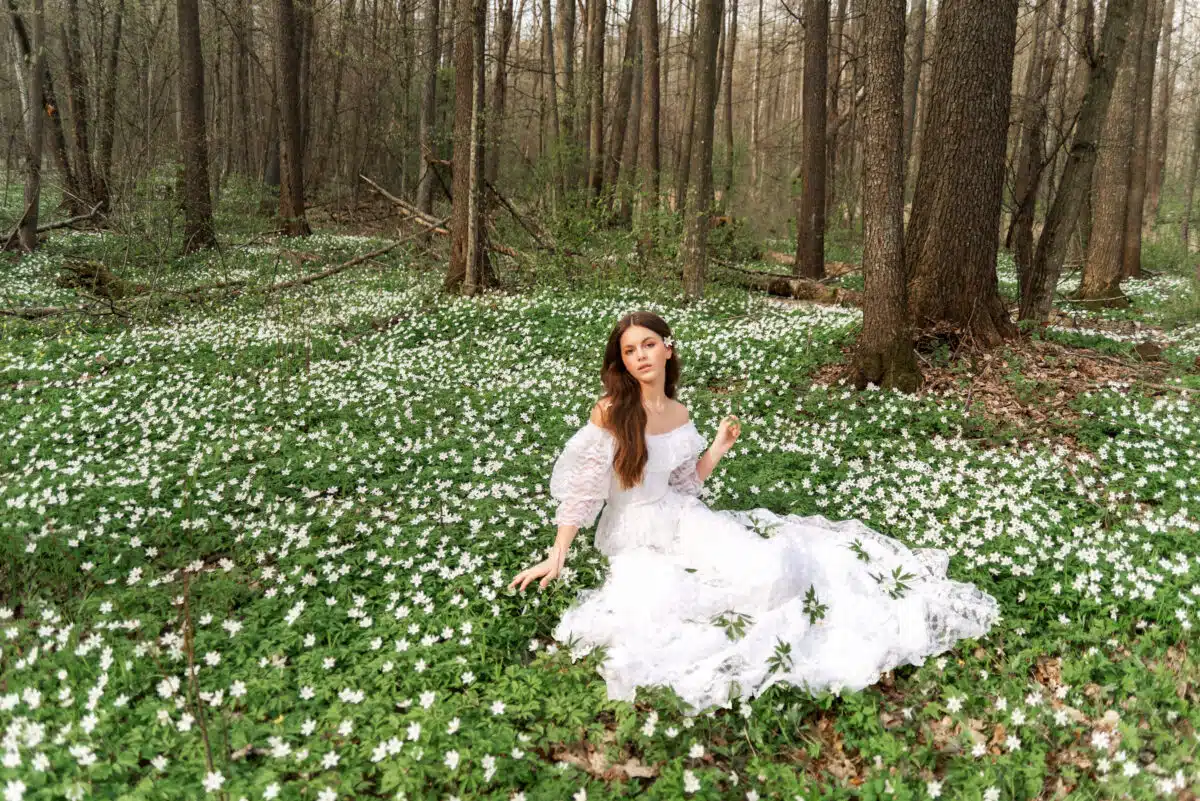
“March” by Elizabeth Drew Stoddard
Ho, wind of March, speed over sea,
From mountains where the snows lie deep
The cruel glaciers threatening creep,
And witness this, my jubilee!
Roar from the surf of boreal isles,
Roar from the hidden, jagged steeps,
Where the destroyer never sleeps;
Ring through the iceberg’s Gothic piles!
Voyage through space with your wild train,
Harping its shrillest, searching tone,
Or wailing deep its ancient moan,
And learn how impotent your reign.
Then hover by this garden bed,
With all your willful power, behold,
Just breaking from the leafy mould,
My little primrose lift its head!
“March Wind” by Edwin Ford Piper
The moody wind—is this its grudge day? Whoo!
Against the dusty sky, in the late sun,
A veering flock of mottled pigeons bounce
From the shoulders of a gust. In our village street
The captious wind runs races with itself,
As a dog pursues its tail; with brute persistence
It buffets leafless elm and maple bough,
Tears at the stiff-armed oak.
From the window-pane
Little Fred looks for his father—he grew tired
Of playing outdoors with so rude a comrade;
For the wind hustles, keeps on pushing people,
Makes the street a barrier to neighboring houses,
Besieges timid folk.
Now the reddish sun
Abandons the world to the wind. In alien twilight
He whistles at keyhole, hisses at the window,
Makes all the timbers groan, exults—cuwooff!
Our lamplight in the kitchen shudders, staggers,
As Burton blows in from the writhing darkness,
And sets both knee and shoulder to the door
To force it shut.
“Hooray! I want my supper!
Good thing the trees are rooted! How the draught
Reddens the stovepipe!”
Supper chat is over.
I look out; clouds are hurrying past the stars;
I listen to the rising talk of the wind:
Puff, pant, moan, roar, and wail. It flaps and tugs
At fence and gate, it throws a wooden bench
Tumbling along the yard. I ask myself,
Has the wind any grudge against our house?
At bed-time it still rages. In the night
I lie and hear the creature—wiff, cuwooff!—
Rattling the sashes, bruising on the gable
The budding twigs of the elm.
I move to the window:
My husband sleeps as men who labor sleep;
And Fred and Jimmie both lie full of sleep.
Little Mabel stirs—is it that nerves of women
Respond to the nerves of storms? Cuwiff, cuwooff!
Unquiet stars. Dim leafless shapes of elm
Beating the dark between me and the stars;
Twisted at, jerked at, strained to the inmost heart,
Surging at the roots, moaning in the angry wind.
Why should this monster need the help of night?
The rushing presence, with invisible bulk,
Has laid a heaving shoulder to my house:
The timbers strain, walls quiver, my heart shakes.
A thump, a crash on the roof, the bouncing slide
Of a brick—a dozen bricks—
“O Burton, say!—
It’s got the chimney! Bring the boys down cellar!
I’m afraid of the wind in such a night! Come, Mabel!
I’ll wrap you in this quilt!”
Cuwiff! Cuwooff!
“March in Tryon” by Florence D. Snelling
I
In the sweet March morning
On the upland road
Sunshine and Blue Moth
And I were abroad.
Like a voice the Silence
Where old leaves lay dead:
“Make straight a highway
For the Spring!” it said.
II
O East, there still are stars (a sign for sleep!)
Like daffodils in a dark garden springing,
While the white moon slips down that other deep
Of West, with low clouds clinging.
We wake for day, my armored-pine and I,
But only Watchman Wind goes lightly by,
His “All’s well!” singing.
III
I have listened, O wind—
I must go.
The valleys below
Into blossom are breaking,
But snow
I shall find
On the way I am taking,
I know.
Level lands become steep,
Rough with stone.
There goes none
On this journey uncharted,
Save one
Who will keep
To the heights joyous-hearted,
IV
Alone.
I have felt thee, O wind,
Out of space
Touch my face.
There shall be no returning.
New ways
Feet must find,
And the slow lips be learning
New praise.
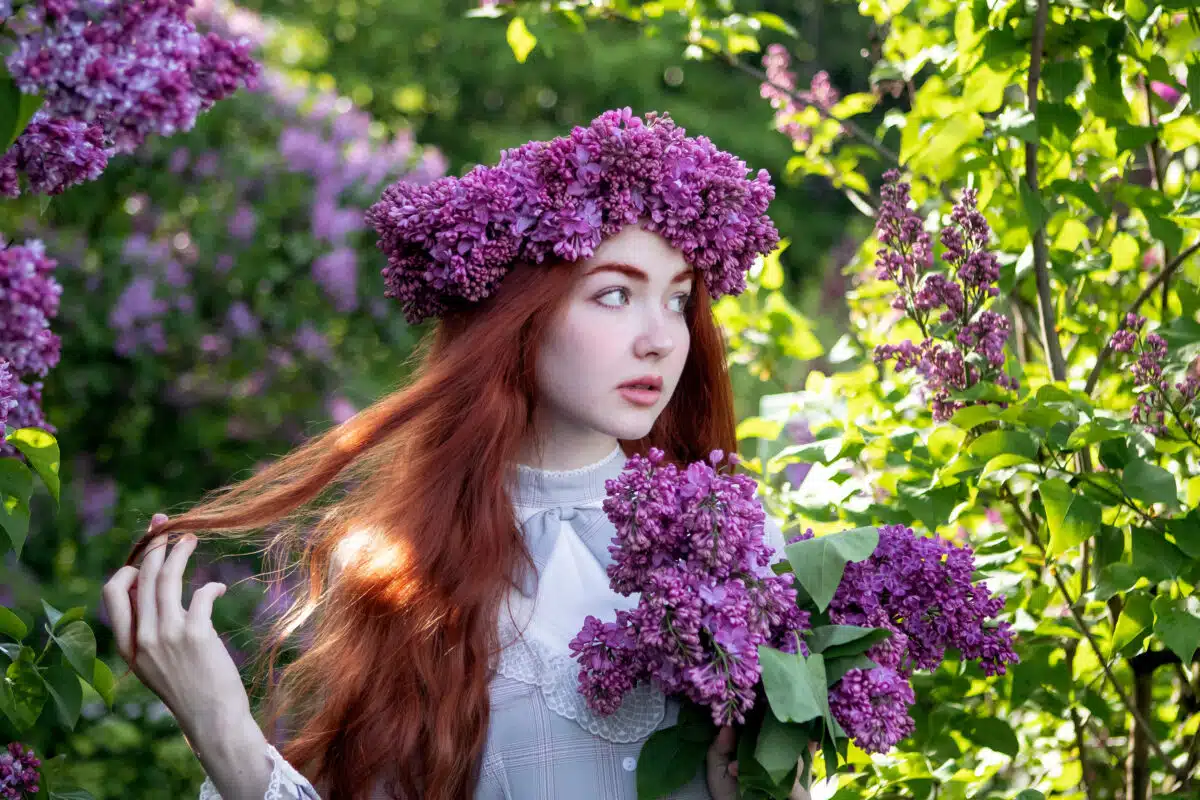
“Song in March” by William GilmoreSimms
Now are the winds about us in their glee,
Tossing the slender tree;
Whirling the sands about his furious car,
March cometh from afar;
Breaks the sealed magic of old Winter’s dreams,
And rends his glassy streams;
Chafing with potent airs, he fiercely takes
Their fetters from the lakes,
And, with a power by queenly Spring supplied,
Wakens the slumbering tide.
With a wild love he seeks young Summer’s charms
And clasps her to his arms;
Lifting his shield between, he drives away
Old Winter from his prey;—
The ancient tyrant whom he boldly braves,
Goes howling to his caves;
And, to his northern realm compelled to fly,
Yields up the victory;
Melted are all his bands, o’erthrown his towers,
And March comes bringing flowers.
“The Wind of March” by John Greenleaf Whittier
Up from the sea, the wild north wind is blowing
Under the sky’s gray arch;
Smiling, I watch the shaken elm-boughs, knowing
It is the wind of March.
Between the passing and the coming season,
This stormy interlude
Gives to our winter-wearied hearts a reason
For trustful gratitude.
Welcome to waiting ears its harsh forewarning
Of light and warmth to come,
The longed-for joy of Nature’s Easter morning,
The earth arisen in bloom!
In the loud tumult winter’s strength is breaking;
I listen to the sound,
As to a voice of resurrection, waking
To life the dead, cold ground.
Between these gusts, to the soft lapse I hearken
Of rivulets on their way;
I see these tossed and naked tree-tops darken
With the fresh leaves of May.
This roar of storm, this sky so gray and lowering
Invite the airs of Spring,
A warmer sunshine over fields of flowering,
The bluebird’s song and wing.
Closely behind, the Gulf’s warm breezes follow
This northern hurricane,
And, borne thereon, the bobolink and swallow
Shall visit us again.
And, in green wood-paths, in the kine-fed pasture
And by the whispering rills,
Shall flowers repeat the lesson of the Master,
Taught on his Syrian hills.
Blow, then, wild wind! thy roar shall end in singing,
Thy chill in blossoming;
Come, like Bethesda’s troubling angel, bringing
The healing of the Spring.
“Marzo Pazzo” by Algernon Charles Swinburne
Mad March, with the wind in his wings wide-spread,
Leaps from heaven, and the deep dawn’s arch
Hails re-risen again from the dead
Mad March.
Soft small flames on rowan and larch
Break forth as laughter on lips that said
Nought till the pulse in them beat love’s march.
But the heartbeat now in the lips rose-red
Speaks life to the world, and the winds that parch
Bring April forth as a bride to wed
Mad March.
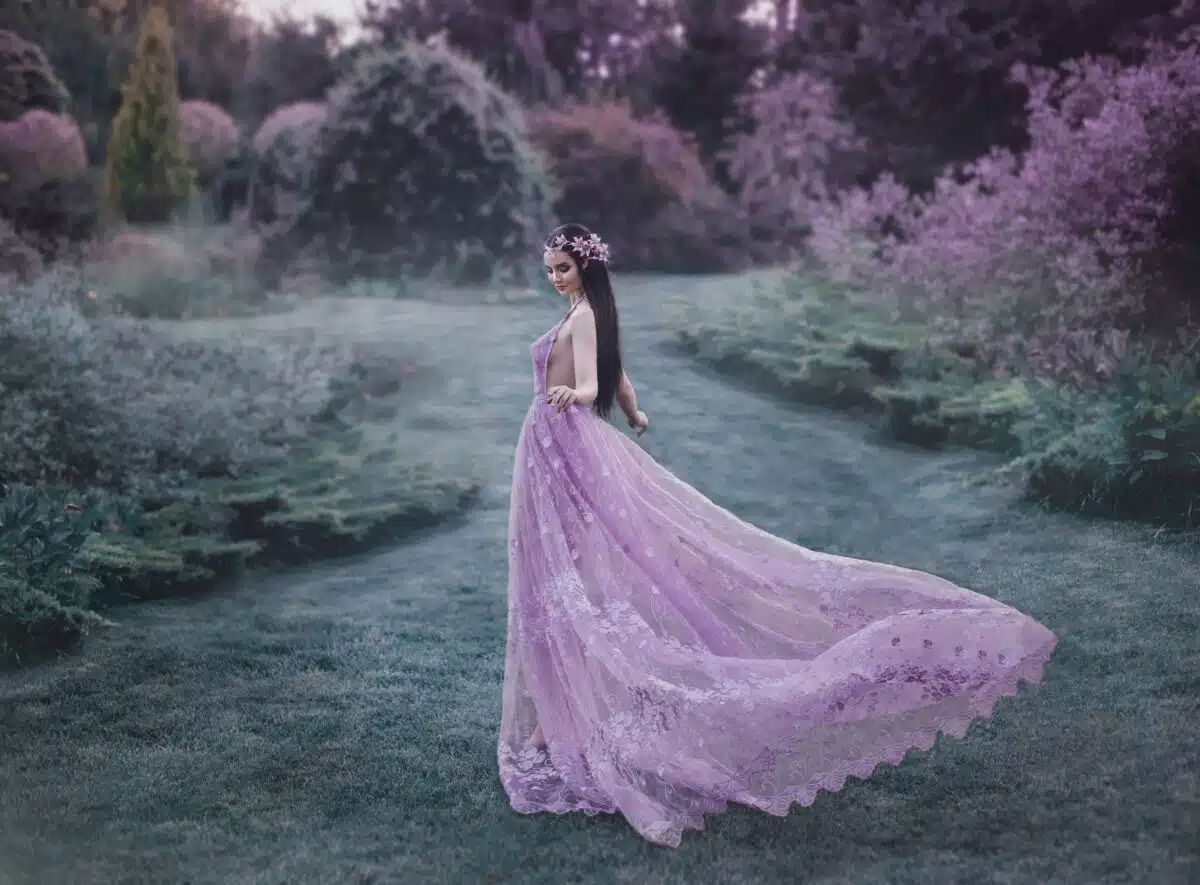
“On A March Day” by Sara Teasdale
Here in the teeth of this triumphant wind
That shakes the naked shadows on the ground,
Making a key-board of the earth to strike
From clattering tree and hedge a separate sound,
Bear witness for me that I loved my life,
All things that hurt me and all things that healed,
And that I swore it this day in March,
Here at the edge of this new-broken field.
You only knew me, tell them I was glad
For every hour since my hour of birth,
And that I ceased to fear, as once I feared,
The last complete reunion with the earth.
“A Boundless Moment” by Robert Frost
He halted in the wind, and—what was that
Far in the maples, pale, but not a ghost?
He stood there bringing March against his thought,
And yet too ready to believe the most.
“Oh, that’s the Paradise-in-bloom,” I said;
And truly it was fair enough for flowers
Had we but in us to assume in March
Such white luxuriance of May for ours.
We stood a moment so in a strange world,
Myself as one his own pretense deceives;
And then I said the truth (and we moved on):
A young beech clinging to its last year’s leaves.
